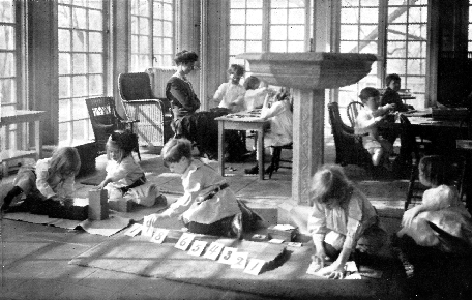
Our Vision
We provide an environment of warmth, kindness and respect for all our children
Our Vision Statement
Chapel Hill Montessori Children's House fosters an atmosphere of profound warmth, kindness and respect our mission. We do this:
-
to nurture curiosity, creativity and imagination
-
to inspire a passion for learning
-
to aid the development of resilience and tolerance, and
-
to honour the legacy of Maria Montessori’s vision for world peace.

.jpg)
Dr Maria Montessori
Maria Montessori was born in 1870 and was the first woman to be granted a medical degree from an Italian university. When she first became involved in education, she used her scientific methods of observation and research to study children and their development. She observed the children in her care in order to ascertain their developmental patterns and needs. Through these observations of children, Montessori discovered how effortlessly children taught themselves. These observations, helped her to design the first “Casa dei Bambini” or “Children's House” in Rome, in 1907.
From her observations and work with the children Montessori recognised that learning is stimulated by an inner need and carries for each child its own motivations and rewards. In modern early childhood, the emphasis is on observing children and providing a program which meets each child’s needs - Dr Montessori was doing this one hundred years ago.
Dr Montessori's approach, the Montessori Method is designed to fit the child, instead of making the child fit the program.
Dr Montessori also used her observations of the common elements of child development to design and make a comprehensive range of equipment to assist the children develop across all areas. Maria Montessori was nominated three times for the Nobel Prize. She died in Holland, aged 82, having seen her theories acclaimed throughout the world. The Montessori equipment is designed to help each child learn practical life skills, develop their fine motor skills, eye-hand coordination and develop all their senses. The equipment is also designed to assist the child to learn to read and write and understand basic numeracy, as well as develop an interest in geography, history, biology, science, art and music. By combining all these areas each child is given the opportunity to develop a strong foundation for later learning.
From around two and half years of age the children begin the earnest work of developing themselves as independent people, acquiring facts and impressions and grasping different realities. Children are naturally curious and always wanting to know what, where, why, how and when. The carefully prepared environment is designed to enable each child to explore and learn.


